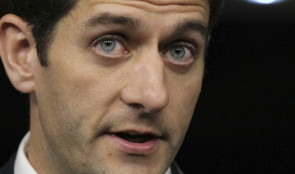I am the child of refugees. Children of refugees always remain refugees. Seven decades ago, my now long-dead parents were children themselves when they were forced to cross the border from what is now Bangladesh into a democratic, yet predominantly Hindu, India. The British Indian Empire was divided by the British along religious lines, right before they ‘exited’ their former colony for good.
I grew up with bedtime stories my parents told my sister and me. ‘We were refugees once.’ Through these stories, we searched for all that we had lost.
Last week, a majority of the people in the United Kingdom carried on a long history of discrimination and segregation of “immigrants” within and without the country’s borders. This time around, the British people presented the Conservative government with a decisive vote, 52 percent voted in favor of leaving the European Union. The people have spoken, President Obama said in response to their declaration.
And with that vote, they sent the rest of us a message—self-interest, self-preservation, and fear of the unknown trumps global order. Britain has voted to exit the E.U. The progress that had been made within the European Union 28-nation alliance, including economic growth, greater flexibility in travel, the creation of jobs across borders during the last few decades, had lulled us into believing that the forces of misplaced nationalism, xenophobia and discrimination were long dead, mere fears of the past. But they were not gone.
******
When Baba told us stories of the Partition of India, there were embellishments, exaggerations, but mostly adventures. He started each story with a ‘guess what?’ as if all these childhood stories were tales of excitement and joy.
The copper vessels tale was the story he liked to tell most. He’d start: “We had no concept of money. What was expensive, what wasn’t. When we fled, we took big copper vessels with us. Not the silver or the gold. We thought the larger the utensil, the more money we’d get when we reached India.”
“So…so what happened then?” I asked. I must have been seven.
“When we tried to sell them, we got nothing. So, my brother and I chased cows on the streets of North Bengal, so they’d run and poop in fear.”
“Why?”
“We took their excrement and made cow dung patties to sell, for the kitchen ovens. Instead of copper, we sold shit.”
My father always said that we were lucky to have a father’s blessing—he lost his own father when he was only four years old. But the refugee stories weren’t always sad. Mostly, his stories reflected how big the roses were in our garden in Dhaka, how massive our home was, the very home that they left to our Muslim neighbors. The plan was always to return. A refugee’s story always includes a return home.
******
According to a recent report by Britain’s National Institute of Economic and Social Research (NIESR) in May 2016, the aggregate GDP and GDP/person would be lowered by nearly ten percent and one percent, respectively, by Britain’s decision to exit.
In less than five decades, migration is expected to decrease dramatically in Europe, which would increase an individual Brit’s taxes significantly. So, the citizens who’ve voted to Brexit will be the very people bearing the brunt of a new economic reality. To be more precise, the citizens bearing most of the financial burden will belong to the younger generation and to a generation not yet born. These Brits will be taxed heavily for a decision made by a generation who won’t be alive to see the dire consequences of their reactionary vote.
******
The main beneficiaries of the Indian Partition were Britain and the politicians who, at the time, where leading Pakistan and India. The British Raj left India, reassured that the now-divided country would never rise up against England. The Indian and Pakistani politicians got their prized ministerial roles, while Gandhi remained benevolent and beloved by all.
In the meantime, millions of people were uprooted in order to segregate Indians based upon their religious beliefs—Hindus made up the center, with Muslims isolated on either side, in East and West Pakistan.
The photos of refugees don’t change much though their mode of escape might: walks through unknown lands now shift to dangerous boat rides between Turkey and the Greek islands, but the motive always remains the same. Refugees walked in 1947, potlees on their heads, cloth tied around their precious belongings, not comprehending that they might be leaving home forever, not knowing where home was anymore.
I asked Ma once, “What did you leave with when you left Barisal?”
“My family,” she said matter-of-factly, ‘Family, and whatever books we could carry.”
Ma came from a family of journalists, teachers. The only way to restart one’s life, of course, was through education.
******
It’s now 2016. The persecution is religious, economic, tribal. Brexit isn’t the only shout of fear ringing out in the world. In America, presumptive Republican presidential nominee Donald Trump relishes his rabble-rousing—building a wall between Mexico and the U.S. has become a campaign rallying cry. In Australia, the anti-immigrant sentiment is focused on South Asians, or more derogatorily, the ‘boat people,’ where offshore detention centers keep the “foreigners” from entering.
Anti-immigrant sentiment in Greece has led to the rise of the Golden Dawn, a neo-fascist party, while policies of the Alternative for Germany (AfD) party in Germany have been likened to those of the Third Reich.
My father used to say, “I want my girls to have a life better than I had.”
I think most every parent wants this for her children, for the next generation. So I ask you, what are we going to do about this? Preaching to the choir, as author Jim Shepard has said, is “whispering out a protest.” An act of protest starts with the realization that a revolution is imminent and necessary.
Come November, do we continue to ignore the facts, to ‘think only after we react? After Brexit, we know a vote is all it takes to dismantle years of progress.
******
Global migration will continue. If refugees cannot get to a safe place in one area of the world, they will find another… to escape wars, famines, dictators. So, if we raise walls, block entry points, protect ourselves from the “outsiders,” migration will still happen, around us, near us, and soon, there will be cracks within our own systems.
If we really want to fight for economic stability, a safe country and a viable future, then we need to start with compassion. Compassion is what holds us together, what makes us stronger. Not fear. Fear of the unfamiliar, the unknown, has always created more barriers to our shared prosperity, not fewer.
With our vote in November, we get a chance as a society to get this right, to be responsible citizens, to hand the next generation a decision we all can live with.
The point is to come to our senses. The point is to decide what matters, now and in the future.
In November, our votes will matter even more than the referendum in June—much, much more. Let’s hope we get it right. After all, we will have to live with the consequences of that decision for a long time to come. There is no going back.
- Madhushree Ghosh
Madhushree Ghosh works in cancer diagnostics in San Diego, California. Her work has been published Origins Literary Journal, Le Sirenuse Journal, Del Sol Review, D&O magazine and others. She was also a finalist in Zoetrope and Glimmer Train writing contests. An Oakley Hall scholar, Madhushree’s award-winning plays have been performed at San Diego Actors Alliance festivals. She is currently working on an essay collection, “Chittaranjan Park Tales” and her memoir, “214 Days of Silence.”








Very well understood and presented!
Very well said, Ms Ghosh. The vast majority of the world’s population wants to live in peace and just carry on with their daily lives. Unfortunately, this does not suit the tiny percentage of rabble rousers hell-bent on destroying society for nefarious political and greedy agendas. These agendas have not changed since the dawn of history. And history has shown, and DNA proves, we have always been refugees and always will be.
Europe’s politicians will look at what’s happened with Brexit and probably recognise there are votes to be won by trying to pander to the worst sentiments of fear and alienation, and scapegoating the EU and immigration,” he said.